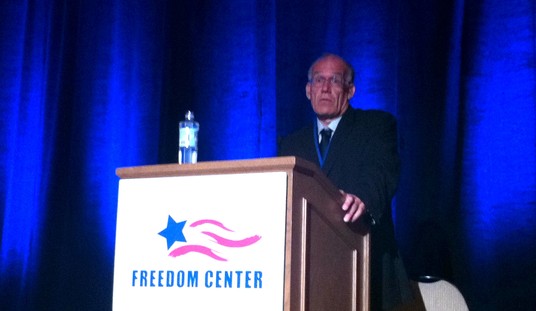Puberty can be the most important and terrifying time of life, and girls are having so much trouble with it that a bunch of them are opting to medicate their way out of it and have ended up cutting off their breasts on the advice of people claiming to be medical experts. It should not be hard for any parent to understand that any “doctor” who denies the medical reality of growing up, someone who encourages your child to skip the crucial milestone of puberty, is an idiot. And not just an idiot but a science-denying idiot.
Clearly, you need help getting through puberty with your daughters, and the medical establishment isn’t going to give it to you. But I’ve been through it and am still going through it with my own daughters, and I feel qualified to help you. So grab some popcorn and belly up to the bar where I will share with you the wisdom I’ve gained during my momming years. I have two daughters who see themselves as young women with no dysphoria, no confusion, and no desire to cut off their healthy body parts. This is winning. Here’s how you do it.
Always affirm your child’s sex from day one.
I hate pink. Avoiding pink was dang near impossible when dressing two daughters. And I think I hate it because it’s everywhere in the kids’ size clothes until you get to the teen sizes. EVERYTHING for girls is pink or purple with glitter and stars. It’s stupid. You don’t need to dress your daughter like a cupcake to affirm her sex. That’s a common misconception, and it has no basis in reality. I actually shopped in the boys’ department for a lot of my daughters’ clothes. For one, the shorts are longer and more modest and have more pockets, and the boys also had the superhero tees that my oldest daughter loved. I never shied away from shopping in the boys’ section for things the girls were comfortable in. My younger one gravitated toward the pink and purple garbage, and so I reluctantly bought it. But I was thrilled to buy Iron Man shirts and cargo shorts for my oldest girl who was more of a tomboy. But buying clothes that are unisex is not the same thing as telling your little girl she might be a boy. I used to say, “girls can wear whatever they want. What makes you comfortable?”
Sex affirming means encouraging your girls to be who they are, wear what they want, and cut their hair in a way that makes them happy and refusing to push stereotypes on them. Both of my girls have had pixie cuts. There is so much freedom for a girl with short hair (no tangles, no sitting for hours getting hair “done”). And if you have a child with sensory issues who cannot tolerate knotted hair, don’t hesitate to lop it off and make her life easier. Long hair does not equal “girl.” At the same time, when the occasion called for a dress, I made sure they had beautiful dresses to pick from along with dress shoes, hair bows, and headbands. We liked dressing up and we liked dressing down. My oldest went through an anti-dress phase, which upset her dad a bit (because he loves buying her dresses), but we left her alone about it and after about a year she came back around and started wanting dresses again.
Another sex-affirming activity we did was put them in jiu-jitsu. How is that sex-affirming? It reinforced the idea that they are strong. Girls are strong. Girls are capable. Girls can play with boys, compete with boys, wrestle with boys, protect themselves from boys, and assert themselves with boys. Girls and boys are equal (especially when they are young and similar in size and strength). I watched my five-year-old daughter win a sit-up contest against boys twice her age. She still remembers that day. My daughters have never felt inferior to the boys around them. We never told them not to climb trees or play war or get dirty. We treated them like children with lots of interests and an unlimited range of options. My husband took them fishing and hunting. He bought them their first pocket knives. He taught them to carve wood and build things. They’ve been encouraged to be on equal terms with boys, and I think because of that confidence they’ve never felt like being a boy is somehow “better” than being who they were made to be—girls.
We also protected them from being sexualized. We encourage modest dressing. We do not buy short shorts and crop tops. Putting young girls in fetishized fashions puts extra pressure on them to be something they are not. It is a crime to do this to girls. It is probably the number one reason why young girls want to be boys. Boys don’t have those pressures. Boys’ bodies are not sexualized through fashion. It’s extremely uncomfortable to start attracting the male gaze when you’re 12. So don’t help that along by putting your girls in skin-tight sexualized clothes. Protect their youth and innocence. Refuse to support stores that sell that trash. Your daughters need to understand that their worth is not wrapped up in their looks or sex appeal. Their worth is in their humanity, their kindness, their skill, and their existence.
Perhaps my family, awash in girls, helps to reinforce that the sisterhood is a good thing. I’m one of thirteen granddaughters on my mother’s side. There are no male cousins. We are a female-dominated family. We tease my dad that his only ally was the male family dog. Yet the men who have married into this family are strong as hell (as you would have to be to survive the estrogen overload). But because the women outnumber the men in this family, we also appreciate them so much more. When my son was born, it was like The Lion King. Everyone lost their minds. Celebrating the differences between women and men and talking about it a lot helps children learn why we need one another.

Talk about what’s coming. Don’t let it be a nasty surprise.
Puberty can hit as early as eight years old. If you haven’t had discussions about what’s coming for your daughters, then real trauma can happen if it hits and they had no idea. I found it was easy to bring these things up as situations presented themselves. One time I found my girls using my Kotex pads for Barbie beds (LOL). I asked them if they knew what they were for. They had no idea, so I told them. They laughed and laughed that they had used them for beds. They still laugh about that. But it was a funny way to bring up periods with them. I think the youngest was four at the time. There’s never a time that is too early to answer questions. If they can ask them, you can answer them. I didn’t make it sound scary. I told them periods make it possible to nourish babies and when there’s no baby, the body doesn’t need it. And I told them right away that one day they would get a period too and that it’s nothing to be scared of. I also put period packs in their bags when they went off to school and told them what to do if they got their period unexpectedly. A period pack has a pair of clean underwear, a few pads, hygienic wipes, and a plastic bag for dirty underwear. They always felt good having that in case of emergency. I also explained to them that any female teacher could help them, and their teachers have always been good about spreading that message to the girls in their classes.
First periods should be celebrated
When my oldest got her first period, I went to the store and bought her things all girls need in a big basket including period supplies, chocolate bars, fuzzy slippers, makeup, magazines, and other comfort items. That made her feel like it was an occasion and that she was part of the grown-up club. When her sister got hers, the older one had a great time shopping with me for gifts. And then we gave it to her and watched chick flicks all day, sharing chocolate and commiserating about cramps and how awful they are. It was a sweet bonding experience for sisters going through growing pains in their relationship as well.
And when my daughters have bad periods, I let them stay home from school, I make sure they have hot water bottles, extra attention, and all the chocolate they can eat. I encourage them to drink lots of water and do activities that bring them joy like reading or journaling or watching movies. I never hesitate to cancel an outing or obligation. I never force my daughters to do things during their period if they don’t want to. The only thing that matters is their comfort and mental wellness. I understand how hard it is and how important it is to withdraw into one’s own space during this time. I think ancient cultures were onto something by sending the women off to a tent somewhere alone during the bleeding time. None of us want to take part in daily life when we have our periods. We want to withdraw and drop out. There is nothing worse than those stupid commercials of women on their periods leaping through fields of flowers or running marathons. Get out of here with that garbage! I make a big deal out of periods in my house. I keep their little brother from bugging them, and I encourage warm baths and lots of “me time.” Ain’t nobody running a marathon around here at that time. Being a woman is hard, and girls deserve some slack.
Periods are a big deal. They take a significant amount of energy to deal with, and I make sure my girls know they have every right to indulge in whatever makes them feel better. This makes period time a welcome respite from the normal grind. Chores go undone. Quiet is encouraged. Hot tea is brewed. And since women tend to sync up, we usually are in it together and have one another to lean on and share our discomfort or have a laugh together. I always assure them that one day they will feel so powerful and full of gratitude for all the bleeding when they carry a baby. It just doesn’t hit you until you have a baby how amazing the cycle is. And it’s something to look forward to, the amazing miracle of life that the female body is gearing up to perform. Until then, it’s an inconvenience and no fun at all—which is why it’s up to you, mom, to make it bearable and even special. This is also a good time to indulge in other feminine rituals like mother-daughter pedicures or manicures. I have always taken my daughters for pedicures since they were tiny (maybe three), and they love it. It’s another way to affirm the good things about being female. Saving the pedicure for a period treat is a good way to take the edge off and a way to make a positive female-centered memory with your daughters.
Bra shopping is fun
Breast growth is painful and uncomfortable at times. When breast buds first start, soft sports bras are the best. Make sure you buy the right sizes and get your daughters used to wearing them early. I often wonder about mothers who ignore breast buds and allow their girls to walk around braless with obvious nipple protrusion. This isn’t Congress. Don’t set your daughters up for ridicule and teasing.
— Old Donald Trump posts (not affiliated w/Trump) (@oldTrumpTweetz) April 18, 2022
There are so many more options now than when I was a kid. I had to shop at JC Penney in the ugly old lady section for a “training bra.” Hideous. Now there are cute sporty options any girl will love. When they get more developed and need a real bra, I take them to Victoria’s Secret and let them pick out the styles and colors they like. We make a day out of it. We get lattes and enjoy ourselves. Being a girl comes with perks, and sometimes those perks come wrapped in lovely tissue paper and shiny bags. Don’t underestimate the allure of shopping for young girls. Make it fun. There’s something very exciting about being “grown-up” enough to shop in the ladies’ department.
Talk and then talk some more and after that talk again
My daughters would probably say I talk to them too much. I check in a lot. I ask them how things are going. I am up in their grills all the time (and I say things like “up in your grill” and “spill the tea,” which makes them cringe, but they laugh, so it’s a win). I know about every bit of friend drama, every crush, every issue at school, every rumor, and every fight. Every day when they come home from school, I begin my soft interrogation. Cookies or cinnamon buns usually do the trick to soften them up to talk. We talk about everything. And then we talk about it again an hour later just to make sure I got all the details. You have to know what’s going on. If you don’t know, you can’t stop the madness. I know their friends and their friends’ parents well. If something is going down, I know about it before it happens. These are important years where things can go terrifyingly wrong very quickly. Spend the time to get to know your kids and what’s going on in their lives. Puberty comes with heightened emotions and poor decision-making. We talk a lot about what hormones do to us and how crazy they can make us feel. I often will ask the girls, “is this true sadness or hormone-induced psychosis?” That usually gets them laughing but also gives them permission to question why they feel a certain way. Sometimes we do a test, and I give them a sugary drink (like Thai iced tea) to see if it perks them up right away. If they start feeling better, we know it’s hormones or low blood sugar contributing to the upset. That seems to make them feel better about the hormone swings. When they know that emotions can be influenced by nutrition or lack thereof, they feel more in control of themselves.

Pray
Whatever religion you belong to, spend time praying for and with your kids. Encourage the sabbath. Go to church or temple with them. Encourage spiritual practice, whether meditation, rosary, prayer, or otherwise. Connection to the spiritual is important for human growth. Religious practice is shown to help balance the human experience. The National Alliance of Mental Health acknowledges that spiritual practice improves mental health.
Both religion and spirituality can have a positive impact on mental health. In some ways, they provide the same impact. For example: Both religion and spirituality can help a person tolerate stress by generating peace, purpose and forgiveness. But benefits generally vary between the two due to their different nature.
Religion gives people something to believe in, provides a sense of structure and typically offers a group of people to connect with over similar beliefs. These facets can have a large positive impact on mental health—research suggests that religiosity reduces suicide rates, alcoholism and drug use. Here are some of religion’s main mental health benefits.
If you have a child who is struggling with puberty or gender dysphoria, get help from other parents going through the same things. Reach out to organizations that help parents with these issues.










